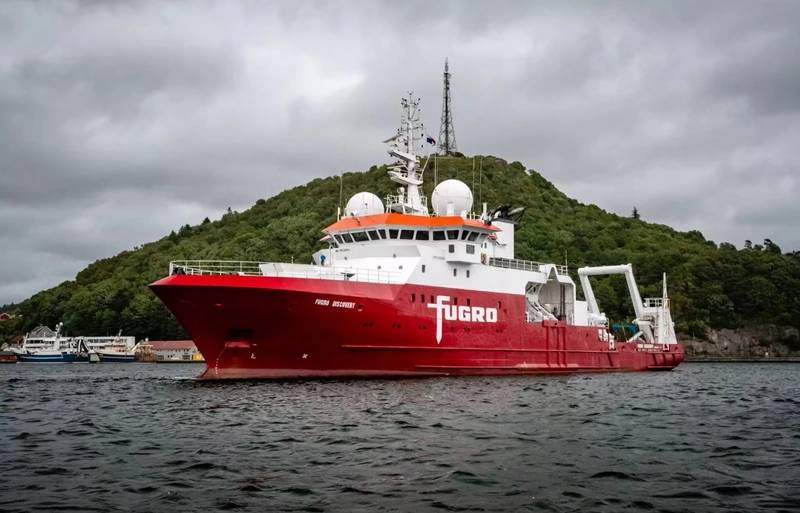Fugro has completed the survey work for the 2024 MAREANO seabed mapping program, including an innovative environmental DNA (eDNA) service, as part of a hydrographic survey contract awarded by the Norwegian Hydrographic Service (NHS).
Supported by the Central Government of Norway, MAREANO is a multidisciplinary initiative aimed at mapping the seabed to generate scientific information for the responsible management and preservation of Norway’s marine resources.
This year’s survey covered an extensive 2,823 km² region in the North Sea, with water depths ranging from 146 to 337 metres.
Using the Fugro Discovery, equipped with high-resolution multibeam echo sounders and sub-bottom data acquisition systems, the primary goal is to gather seamless datasets, integrating bathymetry, water column, and acoustic backscatter data.
Fugro employed cutting-edge sensors and advanced calibration techniques tailored to these challenging conditions. The survey was completed in September and work is now progressing on the final reports and data that will be available via VirGeo, Fugro’s web-based Geo-data platform.
In a first for the program, Fugro included eDNA sampling as part of the survey datasets. This approach provides valuable insights into biodiversity and community composition, which are essential for projects aiming for net biodiversity gain and for monitoring endangered and invasive species.
eDNA enhances existing environmental sampling programs to gain deeper ecological insights, complementing other survey activities such as metocean, geophysical, and geotechnical surveys, according to Fugro.
Furthermore, Fugro collected transit data for NHS to share with the European Marine Observation and Data Network (EMODnet). This data will contribute to The Nippon Foundation-GEBCO Seabed 2030 Project, which aims to map the world’s entire ocean floor by 2030.
“The last few years, the MAREANO program has placed emphasis on the North Sea. There is a need for marine knowledge in areas considered as particularly valuable and vulnerable. This marine knowledge is also relevant for the new marine industries – such as offshore wind and offshore aquaculture,” said Nicolien Haasbroek, project engineer for MAREANO in the Norwegian Mapping Authority.

